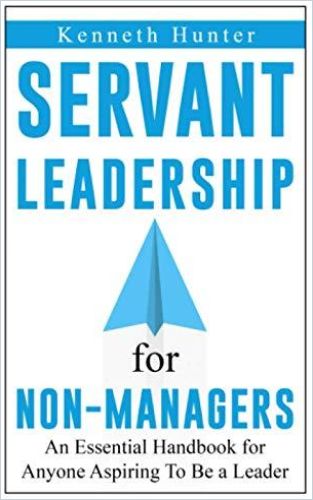Kenneth Hunter – author of Servant Leadership in Business – explains that servant leadership depends on selfless understanding.

Selflessness Rules!
The traditional command-and-control approach to leadership is inflexible and obsolete. Author Kenneth Hunter explains that servant leadership, a supportive and trusting approach in which leaders serve the needs of the people they lead, is the leadership mode of tomorrow. While somewhat repetitive, Hunter explains the basics of servant leadership and details its benefits for leaders and followers, comparing its rewards favorably against other styles. He aims to convince the reader that, with effort and devotion, anyone can become a servant leader. Hunter takes an unusual and helpful approach by writing not for existing leaders – as do most authors exploring this arena – but for those who want to lead.
Responsibility and Burden
Hunter provides a primer – a basic lesson. He starts as any good teacher does, with the historical basis of his argument. He teaches that the concept of leadership goes back to ancient Greece and Rome. The word “leader,” Hunter explains, corresponds with “load,” which implies a burden or a responsibility.
Although traditional leadership still remains the most popular among organizations, people are now becoming interested in adopting new leadership styles.Kenneth Hunter
The author suggests that servant leadership seems new, but readers of business books are already familiar with the concept. Hunter recounts that researcher Robert Greenleaf coined the phrase in his 1970 essay, “The Servant as Leader.”
Followers First
Hunter underscores his main theme point: servant leadership is not about accumulating authority. Servant leaders, he stresses, place their followers above themselves and do not focus on financial gain or personal influence. To those ends, Hunter depicts servant leaders as bosses who welcome employees’ viewpoints and involve them in decision-making. Servant leaders promote openness, establish synergy and support their followers’ individual goals.
Empathetic, Persuasive and Self-Aware
Sticking with his primer style, Hunter lists the traits required of servant leaders. These include good listening skills, as well as being self-aware, empathetic, insightful and able to persuade your followers. He maintains that servant leaders commit to their followers’ welfare and believe in people’s inherent goodness and intrinsic value, beyond their accomplishments or tangible contributions. Readers may not have met a supervisor who combines these qualities, but it’s an goal – emblematic ideal.
Servant leadership involves…sharing power, helping others grow and perform more effectively and allowing those who want to achieve more to do so.Kenneth Hunter
Hunter states that servant leaders bring their followers together as sustainable communities. He spends some time citing and describing various other forms of leadership and how they fall short in comparison to servant leadership, which he presents as a calling.
Challenges
After describing a nearly saintly role model, Hunter returns to reality by noting that selflessness does not automatically transform untried individuals into servant leaders. Becoming a servant leader takes time and focus. The author offers a litany of challenges servant leaders face, including imposter syndrome; coping with workers who are content with their own mediocrity; having your servant-self perceived as weak or as someone who won’t discipline workers; and dealing with workers who can’t understand servant leadership.
Hunter suggests, in contrast, that substantial benefits accrue to servant leaders and their organizations through the activities they undertake. These include furthering diversity and acceptance; encouraging people to immerse themselves in the organization; fostering loyalty; developing a cogent culture; and improving productivity – not that any given leader can hit all those corporate culture high notes at once.
Servant leadership is a humane ideology and admirable philosophy.
Hunter believes servant leadership can become a calling and a way of life, despite its challenges. To navigate this journey, he falls back on relatively basic advice to stay positive.
Servant leadership is more than just a leadership style. It’s a philosophy and a daily practice of thoughts, feelings and actions.Kenneth Hunter
Hunter holds with the basics by noting that to engender trust, you must keep your word, and do what you promise. He moves into pure self-help territory by urging you not to worry about looking bad if you fail, and to be bold and forthright, not fearful. What counts, Hunter reiterates, is what you do. Finally, he reminds you, don’t talk about the benefits of servant leadership – make them real through your actions.
A Noble Idea
Among recent works on servant leadership, Hunter’s seems the most spiritual and most grounded in the ethos of self-help and self-development. Conversely, it seems less grounded in real-world, real-office strategies and tactics for those seeking to shift upward into leadership positions. Hunter wants to alter mind-sets, and to help younger, less accomplished readers develop an ideology that might frame their eventual ascent to leadership. His book, then, seems aimed at students, new managers or those unfamiliar with self-help books that encourage selflessness. Hunter offers a moving, if idealistic vision.
Other informative, if perhaps less idealistic, reads on servant management include Hunter’s own Servant Leadership in Business and James C. Hunter’s The Servant and The World’s Most Powerful Leadership Principle.





